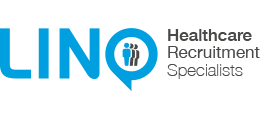
10 Jan The Four Soft Skills that are crucial for Healthcare Professionals
It goes without saying that specialist knowledge, technical skill and experience is required for nearly all healthcare roles. But while these can be learned, there are certain soft skills that are harder to teach – and that are absolutely essential for healthcare professionals to have.
Let’s run through four of the most critical soft skills in healthcare, along with tips for developing these traits in yourself:
Empathy
Healthcare and empathy are intrinsically linked. This is a sector that is all about care, respect, dignity and sensitivity.
Without the ability to develop trusting relationships with patients, health workers will be unable to deliver the required standard of care.
It’s also important to be able to show empathy towards colleagues as well as patients. Some days are more difficult than others, especially in a sector under pressure, and it’s important to have support and understanding from the people you work with.
Developing your empathy skills is a process that takes time. There are courses you can take focusing on improving interpersonal skills, but it’s just as important to practice this skill regularly. Take a moment out of your working day to put yourself in someone else’s shoes, identify your own feelings and biases, and try to understand what motivates other people’s behaviour in certain situations.
Communication
Within healthcare, its important to be able to make yourself understood. Whether you’re explaining a diagnosis to a patient or making a business case for purchasing new equipment, you need to be able to communicate well with lots of different types of people. Empathy helps with this, but it’s also key to remain professional even when passionate about a particular topic.
Adaptability
The health sector is fast-paced, dynamic and unpredictable. No two working days are ever the same.
You need to be able to respond to whatever is thrown at you, whether this means managing a challenging situation or taking on new responsibilities at short notice. You’ll need to be calm under pressure and clear-headed when finding solutions to unexpected problems.
Unfortunately, only experience can help you master this skill.
Team working
You may have periods of working alone, but healthcare is essentially a team game. You’re working as part of a team, which is part of a larger organisation. All the different moving parts need to work in harmony, collaborating and coordinating to deliver a high-quality service.
This is another skill that is best developed with experience. But there are ways you can improve your value as a team player, starting with developing empathy towards your colleagues and supporting them where possible. Stick to deadlines, honour commitments and be punctual, then your team can be confident that they can rely on you.
Interested in working in healthcare? If you have these qualities and the right skills, experience and qualifications, a fulfilling career awaits you.
Find your dream healthcare job with Linq, specialist recruiters for the health sector. Search our latest vacancies here.

